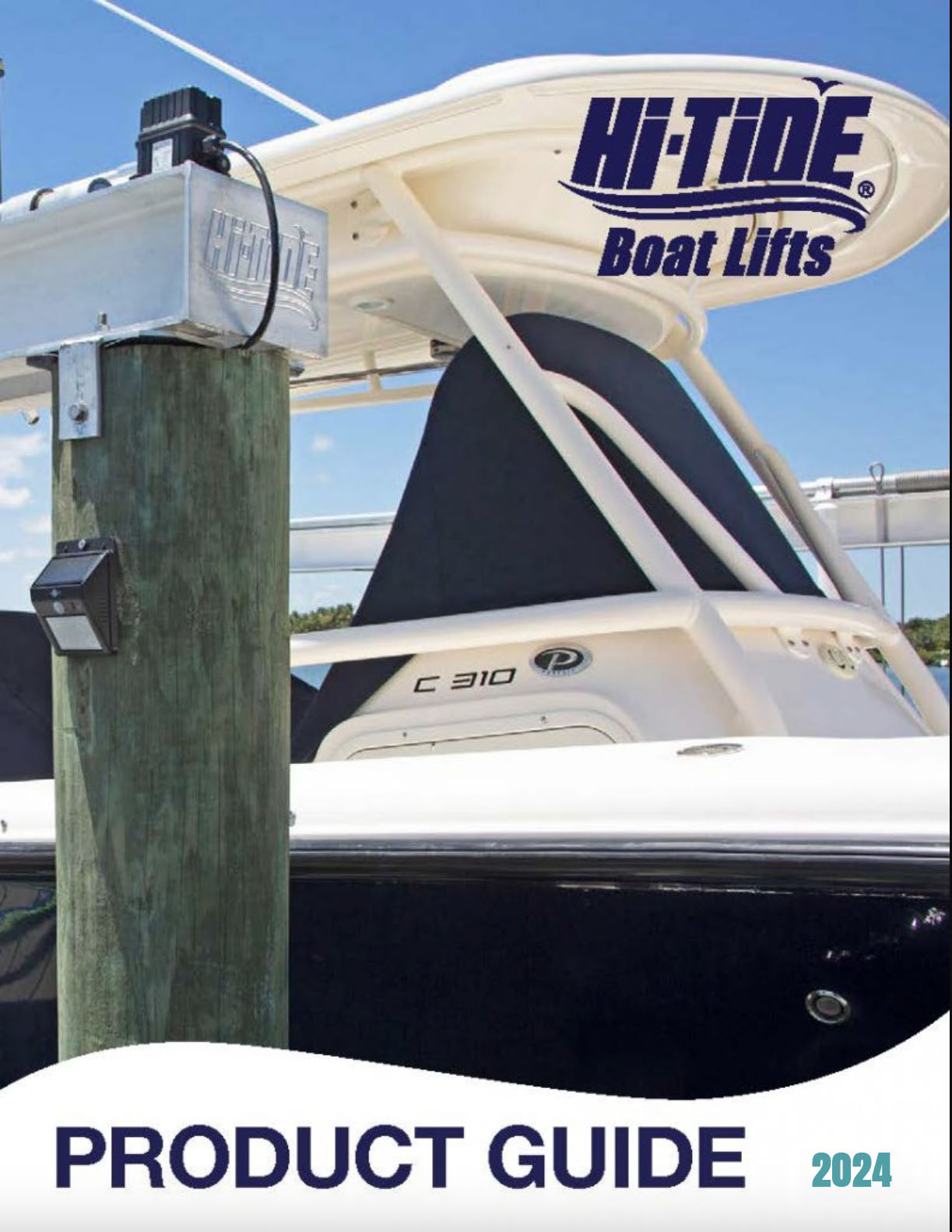
Though you may be more than comfortable visiting your favorite boating spot for years, sometimes Old Jim’s lake can get a bit humdrum (we still love you, Jim). Maybe you dream of hitting the water out West. Perhaps you just want to see the boating diversity within the Sunshine State itself. We’ve all had wandering daydreams of boating spots that are on our “must-see” lists. Why just dream about it when the U.S. is full of diverse waters and some of the best boating in the world?
If you want to get a taste for boating outside of your normal boating bubble, research these five cities for some of the best boating you’ll find this side of the Pacific.
5 of the Best Boating Towns
- Tampa/St. Petersburg, Florida: Featuring Tampa Bay, the largest estuary in Florida, the Tampa/St. Pete area is also rich with rivers and smaller, cruiseable bodies of water. Don’t forget the nearly year-round warm weather that extends boating season far beyond that of our northern friends.
- Ft. Lauderdale/Miami, Florida: OK, we know — you probably think we’re a bit biased, sharing two Florida towns as our picks for best boating, but stick with us. With beautiful, blue waters, fantastic scuba and fishing spots, and a world-renowned boat show, South Florida is simply unmissable on your quest for the best boating in America.
- Austin, Texas: If freshwater boating is more your tempo, look no further than Texas’ inland gem, Austin. This city is home to nearly 5,000 miles of freshwater and nearly 300 lakes. If you’re a fan of Florida’s warm weather, Austin also doesn’t disappoint in this department.
- Minneapolis, Minnesota: Sure, the weather in this chilly, midwest town doesn’t lend itself to good year-round boating, but the “Land of 10,000 Lakes” is a boater’s paradise in warmer months. There are nearly countless options for some top-tier freshwater fishing here.
- Seattle, Washington: A city that’s often dismissed as a rainy, depressing and drab, the boating and outdoor scene is anything but. Featuring a strong boating community and simply gorgeous views, grab a cup of joe and give this city a try.
There’s nothing like having a secret fishing spot or boating route that you share with only blood relatives and best buds; it’s part of boating culture. However, seeing what the rest of this grand country has to offer is something that can make you grow as a boater, and as a person. The above five picks for best boating are far from the only notable cities to add to your must-see list. We’d love to list every worthwhile boating town, but we’d be updating this post well into next week. However, we encourage you all to take the time to explore something new with the ones you love. Who knows? You may just find your new favorite fishing town or boating bastion.
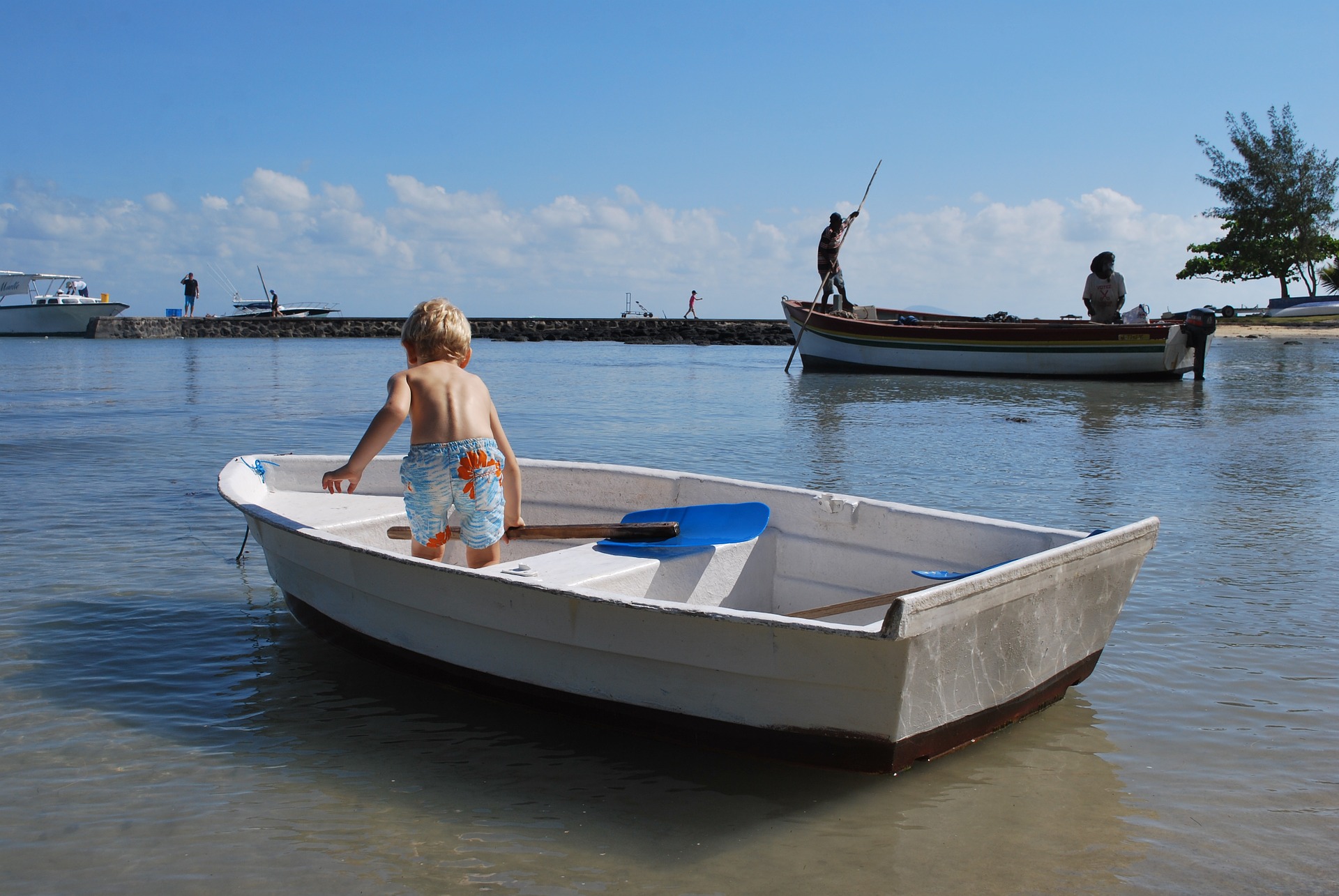
Boating is a treasured pastime that many boating and fishing enthusiasts around the globe enjoy passing on to the next generation. There is nothing quite like sharing the experience of being on the water with your family and, hopefully, inspiring them to share this passion with their family someday. Though boating is a perfect family outing activity, it is not one without risks that you need to consider in order to keep your kids safe. For that reason, we compiled a list of helpful boating safety tips for kids that can help make your day on the water as safe as possible for the little ones.
Boating Safety Tips for Kids
- Life Jackets Save Lives: We have recommended them before but this is a point worth repeating: you must have enough life jackets onboard for everyone. Before hitting the water, have your child try on the life jacket to ensure that it fits correctly, then enforce the use of it while on your trip.
- Swimming = Safety: Get your kids comfortable with swimming by enrolling them in swimming classes. It is also essential to teach them the dangers of swimming in open waters versus swimming pools. Many kids don’t know the dangers of currents, waves and weather — all factors that can be big dangers to both children and adults.
- Never Out of Sight: Even when stationary, keeping an eye on your kids should be a top priority, as waves, wind or even just the rocking of the vessel can easily send an unsuspecting child overboard.
- Do Your Due Diligence: Don’t skimp on the safety basics that you should be practicing as a responsible boater. Keep up-to-date on maintenance, install carbon monoxide sensors and always ensure that your boat is equipped with enough fire extinguishers. This, with performing regular fire drills, can protect your family while on the water.
As you probably realize, many of these aren’t just boating safety tips for kids, but lessons we can all take with us while on the water. Just remember, preparation is a major key to boating safety. Take the time to purchase and install the right equipment, practice good safety habits and keep an eye on your little ones whenever enjoying a day of boating. We have a responsibility to the next generation of boaters to ensure that they learn how to enjoy our pastime the right way — with safety always in mind.
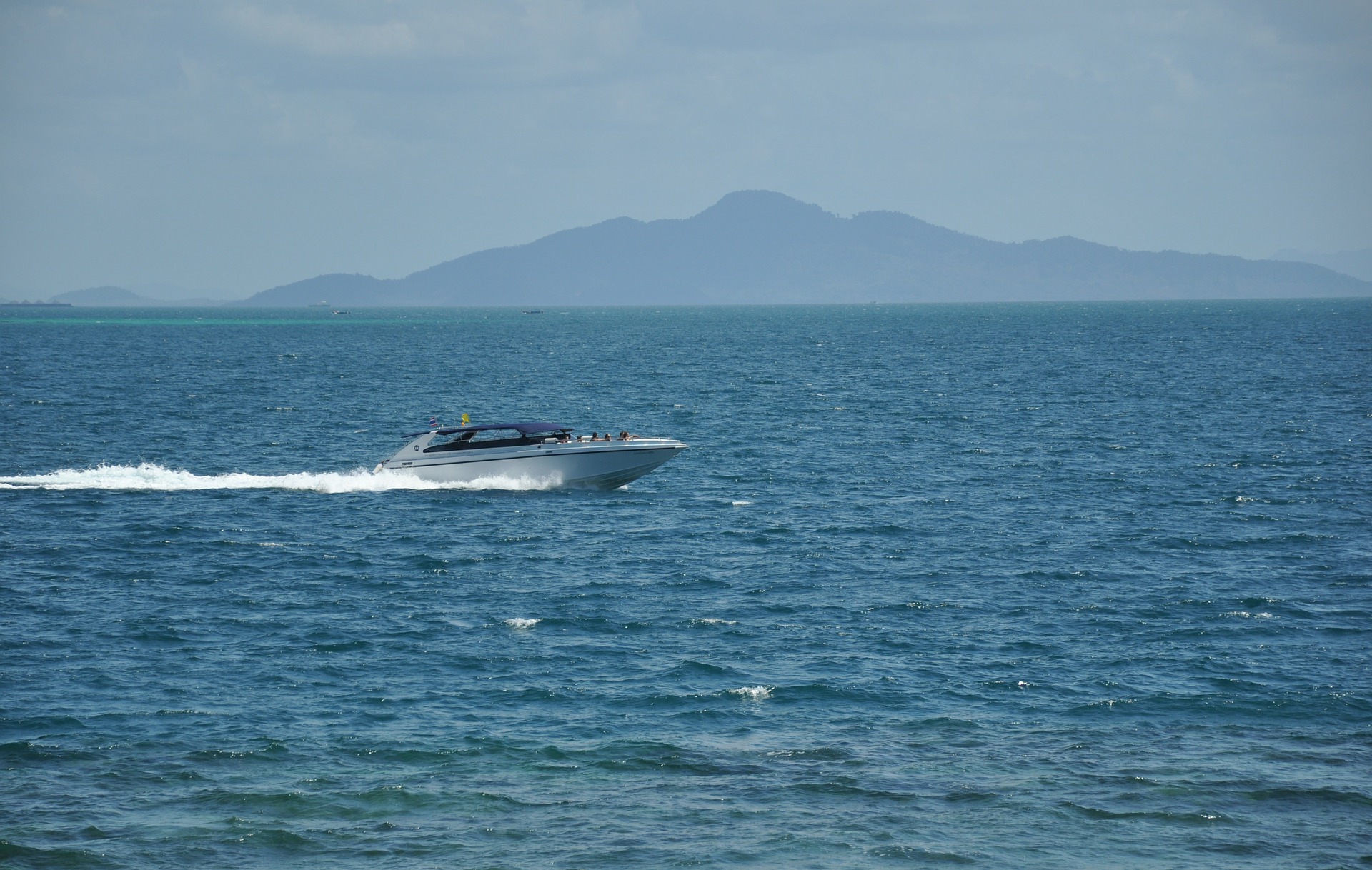
Cats versus dogs, sweet versus savory, live bait versus artificial lures; there are certainly more than enough topics to be divided on, and catamarans (cats) versus monohull vessels is yet another worth adding to your list. As a boater, the waters you travel, and the purposes for which you do so, play heavily into your choice of vessel. Hopefully, we can shed a bit of light on the differences, pros and cons on these vessel varieties in order to ensure that you buy the right boat for the job.
Catamarans
The Pros:
- Cats are, generally, much more stable than monohulls due to the weight displacement offered by multiple hulls.
- The cabin space in cats are often much wider and situated above the waterline, providing added comfort for cruising or enjoying a day on the water and sunshine.
- Cats, even capsized, very rarely sink, due to high buoyancy.
The Cons:
- Historically, cats are notorious for the risk of capsizing, though modern designs have greatly improved their safety.
- Due to these vessels being wider than many monohulls, they may be a bit trickier to dock.
Monohulls
The Pros:
- The price of monohulls is often lower than comparably sized cats.
- Monohulls provide a traditional “feel” while boating, which many prefer to the flatter plane provided in a cat.
- Though cats are more stable, monohulls don’t slap the water as much when cruising at higher speeds.
The Cons:
- Monohulls are far less stable that cats while on the water.
- The risk of sinking is much higher in a monohull, whether from a leak or after capsizing.
- Due to the fact that most of the main living space in a monohull is below the waterline, these spaces can often feel claustrophobic.
Like so much in boating (and life), the decision really comes down to personal preference. We recommend taking a trip on both varieties in order to see which vessel best fits the feel that you’re looking for while on the water. Just remember: no matter whether you choose to team with catamarans or monohulls, Hi-Tide has the perfect boat lift for the job.
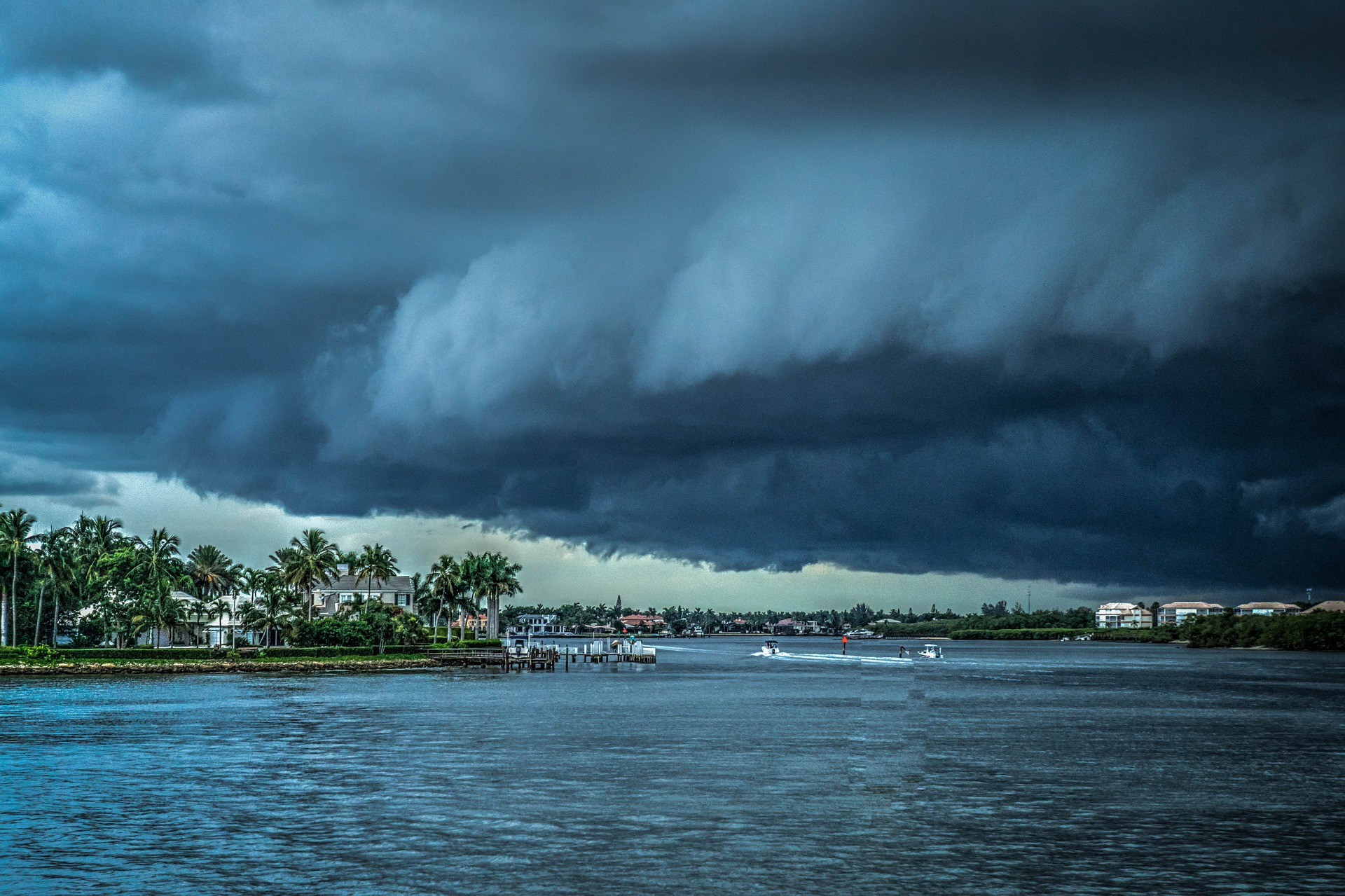
So, the bad news first: we are incredibly overdue for a hurricane to get up close and personal with The Sunshine State. In recent years, we have been extremely lucky, seeing little to no action as far as hurricane threats to our shores. Luck, however, has a tendency of running out. The good news: with a bit of preparation and education, you can increase the chances of your boat making it through hurricane season 2016 (and beyond) when it officially starts this June. Surely, there are no guarantees when dealing with a force of nature as powerful as a hurricane, but these tips could save you big when the next big one comes for a visit.
Preparing for Hurricane Season 2016
- Make a List and Check It Twice: Take the Santa Clause approach to hurricane season 2016. Prepare a written out checklist of your storm plan once it looks like we’re in the crosshairs of a big storm. From people to call (insurance company, marina, etc.) to items that need to be stored on-shore, the last thing you want to do is remember that one thing you forgot after it’s too late. Preparing a list of your must-dos will prevent panic and hopefully, costly losses on your vessel.
- Make the Call: As stated above, you should reach out to a few key people before the storm hits, namely, your vessel’s insurance provider and the marina or dock where your boat is stored. Get the facts straight on what your insurance expects you to do, as far as preventative measures. According to OnTheWater.com, “In fact, most insurance providers require a formal written Storm Plan detailing where and how your boat must be secured during a hurricane. Make sure your insurance policy is current and in force, and that you know what actions it requires you to take in the event of a storm. If you live out of the area during the summer months, designate a responsible person to execute the Storm Plan in your absence.” If your boat is docked at a marina (or comparable location), reach out for your lease or dockage information to clarify both their responsibilities and your own as the boat owner.
- Abandon Ship: We love boats, but we value our lives more. Never consider staying behind to watch over your vessel. Do what you can to create a feasible plan, prepare for the worst and ride out the storm from a safe location. There is always the temptation to go back to do that one last thing or grab that one last valuable but we assure you, it’s never worth risking your life for your boat.
We also have a list of specific preparation tips for securing your vessel when the next storm comes rapping at our door. Just remember, it’s not a matter of “if” but rather “when” the next big one will hit. The sooner you have your storm plan prepared, collect information from your insurance company and marina, and resolve to focus on your own safety (as opposed to your ship’s) once the storm hits, you will be well on your way to facing hurricane season 2016 with confidence once it begins this June. Until the next one does hit, have a great time enjoying the water with those you love, knowing that you are prepared for whatever Mother Nature may have up her sleeves this year and for years to come.
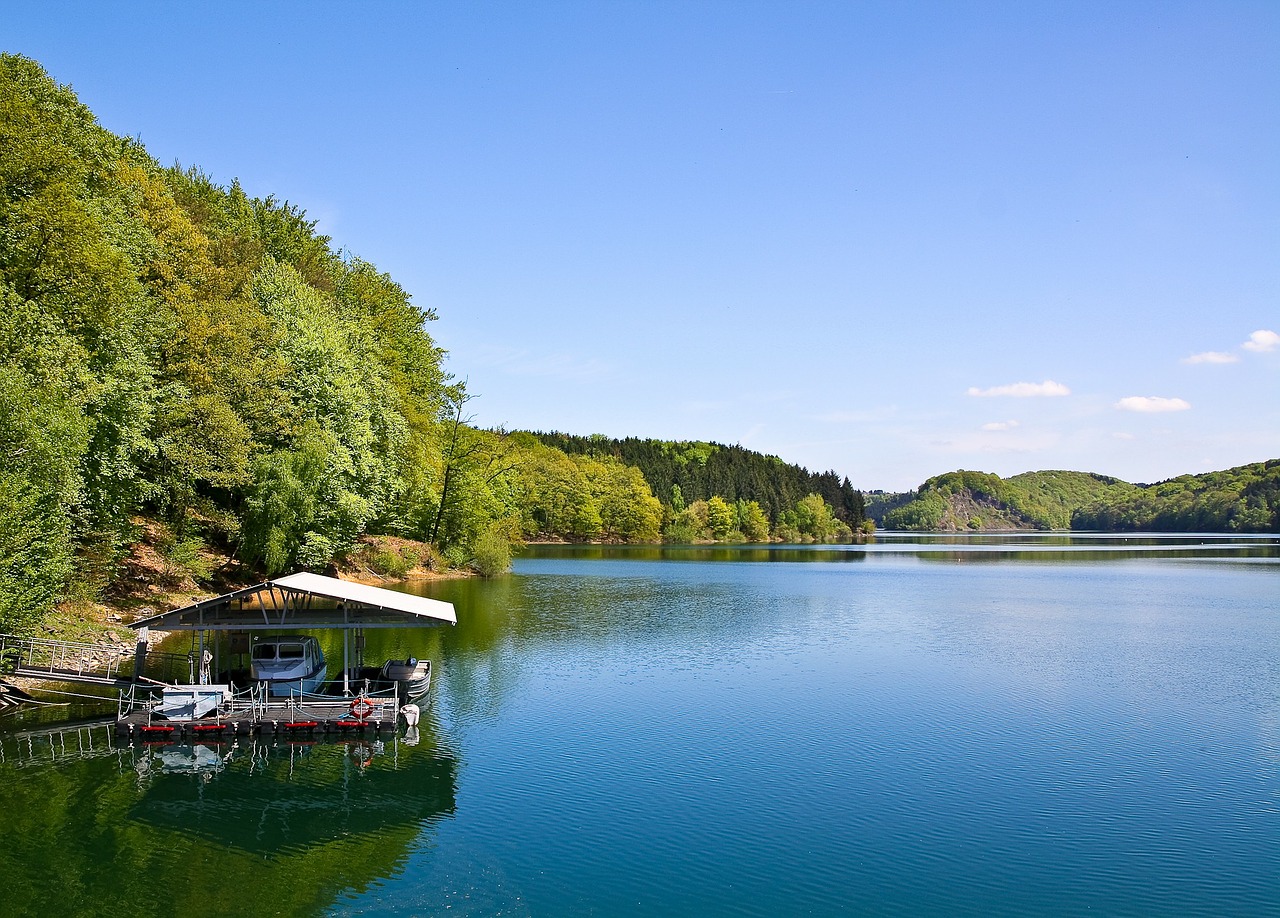
From sweltering heat to monsoon-like downpours, The Sunshine State has weather that’s just a tad on the extreme side. That being said, your boat is bound to take a beating. How can you protect your boat from suffering while out in the elements? From boathouses to waxes, we have a few suggestions to keep your boat shipshape in Florida’s famous sunshine.
How Can I Protect My Boat From the Elements?
- Rinse and Repeat: A vital first step to keeping your boat protected is to clean up your act the right way. Wax and other protectants will not work correctly if you don’t clean your boat thoroughly. Only use boating-specific soaps, however, since some soaps may actually repel the protective waxy coat, you may apply this later.
- Wax On, Wax Off: Though not a necessary step after every boating trip, you should absolutely take the time and energy to wax your boat after washing it. Similar to the benefits of waxing your car, a thoroughly waxed boat will not only have a beautiful sheen but will also be protected from the sun’s ultraviolet rays. Again, ensure that you use a boating-specific wax to ensure that you’re using the right tool for the job.
- Welcome Home: Consider utilizing a boathouse. Boathouses have been used for ages to protect boats from the elements, safely shading them from the sun and rain. With boat lifts made specifically for boathouses, your vessel can be safer than ever.
Though boating is a great way to enjoy some fun in the sun, don’t forget that that very sunshine can cause big issues for your boat’s finish. Prepare by washing your boat regularly, waxing on occasion and keeping your vessel under the cover in a boathouse. Just remember, keeping your boat clean isn’t all about looks; regularly cleaning and waxing is important for both the resale value and long-term care of your vessel.






